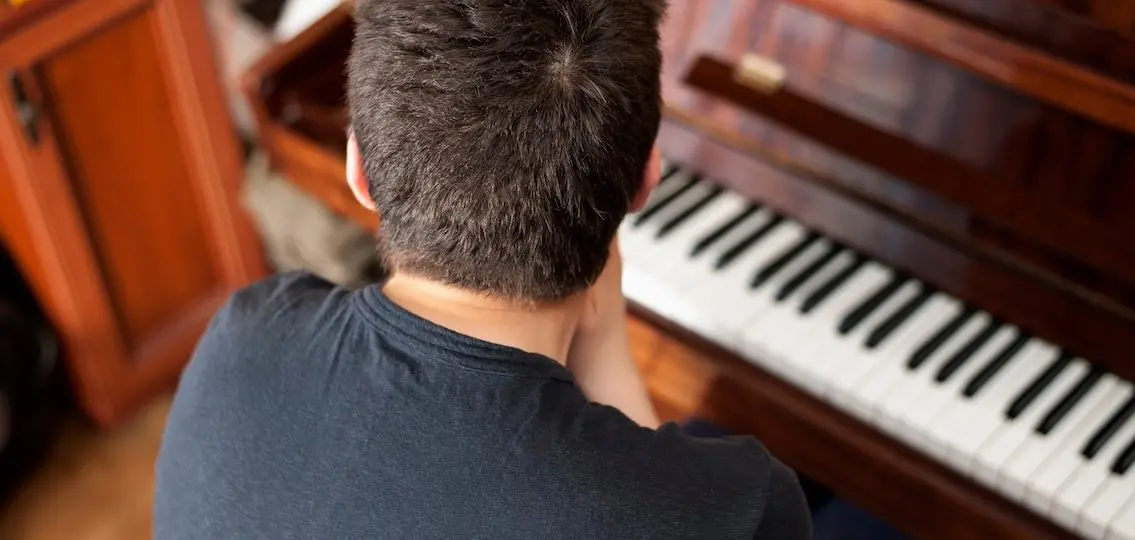My teenager had a big decision to make about quitting something that had been a big part of her life for a long time.

She wasn’t quitting mid-stream. She wasn’t pulling out of a commitment she’d made. In fact, the main reason the decision was so hard was that she knew if she signed on for another (long) season, she’d have to see it all the way through, with excellence and a good attitude.
I couldn’t tell her what to do for lots of reasons. But chief among them was that I didn’t know what she should do. I was as torn as she was. I could see both sides of the equation, could envision the pros and cons behind Door #1 and Door #2.
So I told her I would practically and philosophically support whichever choice she made, but I mostly just listened as she talked it out.
In the end, at almost the eleventh hour, a few big pieces of the puzzle fell into place. My daughter made the choice to be done. To literally take herself off the marching band roster.
Watching my teen work through this decision taught me some lessons about the process of knowing when to be done with something and when to sign up for another round. Next time, I’ll know the questions to ask.
When Should You Quit The Team (or Anything Else)
1. Are you staying in only because you’re trying to hang onto something or someone?
Leaving friends behind—or at least not having the same kind of regular interaction with them—was the main force wooing my daughter toward committing to another season of this particular activity. “I’ll never see them if I don’t do it,” she told me.
But good advice from another friend’s mom—to not let friends hold you back from doing something new that they’re not part of—ended up applying in reverse to this particular decision. I told her that if the friends she was worried about missing were true friends, they would still be her friends if she quit. And since relationships in high school are notoriously transitory, staying in only for that reason would make for a lot of misery if those friendships faded.
2. Do you like the process or only the product?
The show, the game, the performance, the presentation: these are usually the end result of a lot of practice and effort and time. Too much time, in fact, for these elements to only ever be endured.
When I ran down a list of the process pieces of what being on drumline looked like for my daughter, she told me, “When you were listing those, I just thought, ‘Yuck.'” It wasn’t quite the big “aha” moment for her (see #5 for that), but it sure was for me.
3. Are you staying in because of guilt or fear?
Two factors kept pulling my daughter toward committing to another year of marching band. She felt guilty when she thought about letting her fellow bandmates down, and she wasn’t sure what life would look like without the familiarity of practices and competitions and games. Neither was a good reason to stick with it. My daughter wasn’t irreplaceable in her band and, as it turned out, band wasn’t irreplaceable in her life.
4. Are you making this decision based on one insignificant fact or on something you don’t actually know is a fact?
A huge change in the leadership of my daughter’s program hovered in the background of her thoughts. We were not at all certain how it would play out. But when my teen ran down her list of reasons to be done, this was only in the periphery. And I was glad. I would have been worried if she had made her choice based on assumptions. But she based her decision on personal realities, not on personnel eventualities.
5. When you’re doing the thing, are you always waiting for it to be done?
This was a tide-shifting wave in the ocean of my girl’s decision-making process. The day her choice crystallized was the day she realized that at pretty much every stop along the way in the marching band season, she was always gauging how much longer she had to do it.
6. What would you do with your time, energy, and talents if you weren’t spending them on this?
Try something totally new? Sleep more? Get better at something else you’re already doing? The best thing I heard my daughter say on this subject was that if she decided to be done, she’d have more time to pour into her relationship with one of her non-band friends.
7. When you think about not doing this, do you feel sad—or relieved?
Both would be expected to some extent. But ask yourself which is your dominant, unfiltered reaction, your answer is probably telling you some truth.
In the middle of this whole process, I commented to another parent that my daughter was trying to decide if she should quit. “Not quit,” my wise friend said. “Choose.” I loved that perspective.

Once my teenager finally made her decision—“I’m done”—she never looked back and never regretted it. We lost track of how many times she said, “I’m SO glad I’m not doing that anymore.” Which told both of us that in the choice between good and better, she’d found what was best.




